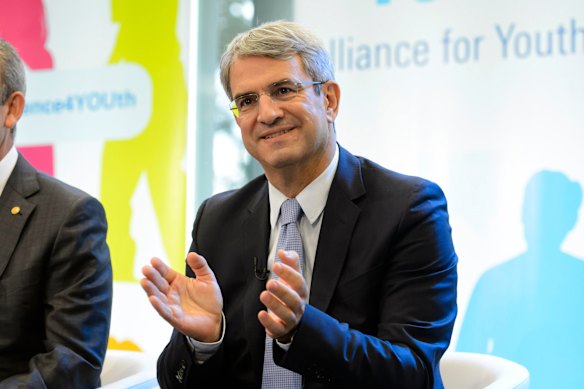
The recent departure of Laurent Freixe from his role as chief executive of Nestlé has highlighted the ongoing issues surrounding office romances at the highest levels of corporate leadership. An investigation revealed that Freixe had engaged in an undisclosed romantic relationship with a subordinate, leading to his dismissal this week. This incident not only raises questions about corporate governance but also reflects a broader trend of executives facing consequences for personal conduct.
Freixe is not the first high-profile executive to lose his position due to office relationships. In July, Andy Byron, the CEO of Astronomer, was terminated after being caught on a stadium “kiss cam” with the company’s chief people officer during a Coldplay concert. This followed the exit of Ashley Buchanan, chief executive of Kohl’s, in May after the board discovered he had directed substantial business to a vendor with whom he had a romantic relationship.
Kabrina Chang, a business ethics professor at Boston University, expressed her disbelief regarding the persistence of such behavior in the corporate world. “It confounds me that in 2025 they think they can get away with this,” she stated, questioning whether these executives feel a sense of invincibility regarding their actions.
The fallout from these relationships can be significant. The #MeToo movement has prompted boards to take complaints seriously, leading to increased scrutiny around workplace behavior. Even consensual relationships can create challenges, especially when they involve a manager and a subordinate. According to the Society for Human Resource Management (SHRM), over two-thirds of HR professionals cite the perception of favoritism as their primary concern regarding workplace romance.
While it is impossible for companies to eliminate office relationships entirely—many individuals find long-term partners at work—there is a clear expectation for organizations to ensure a safe and equitable work environment. As noted by Andy Challenger, CEO of outplacement firm Challenger, Gray & Christmas, the stakes escalate dramatically when the CEO is involved in such situations.
Roxanne Bras Petraeus, chief of Ethena, a workplace compliance training platform, observed that while office dating has not increased, employees are more vigilant about boundaries. Ethena has reported a noticeable uptick in inquiries regarding workplace romances, suggesting that employees are seeking clarity on their companies’ policies.
Policies surrounding workplace relationships vary significantly. A separate SHRM survey indicates that only about one-third of employees are required to disclose such relationships to their employers. In Freixe’s case, the relationship came to light through an internal reporting system known as “speak up.” Initially, the investigation did not substantiate the claim, but further concerns prompted a deeper inquiry involving external legal counsel.
The trend of corporate leaders facing repercussions for their personal conduct underscores the evolving landscape of workplace ethics. As companies navigate these complex dynamics, the focus remains on maintaining a fair and accountable work environment for all employees.







